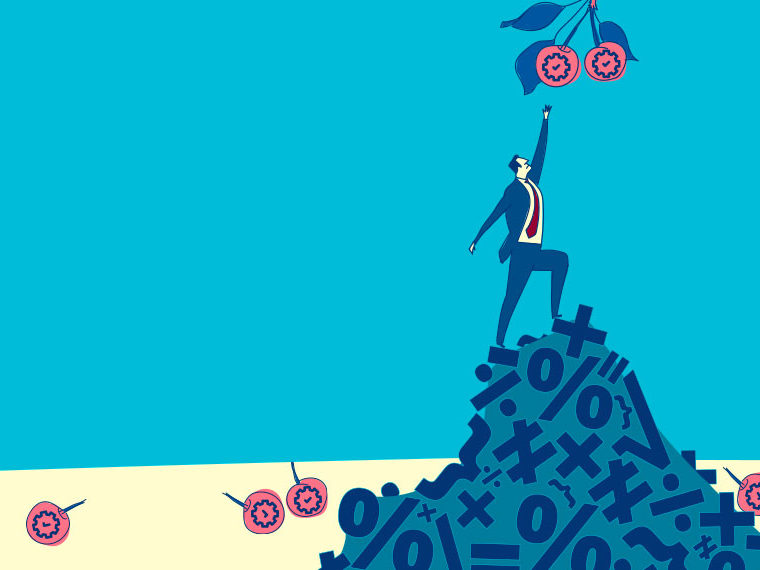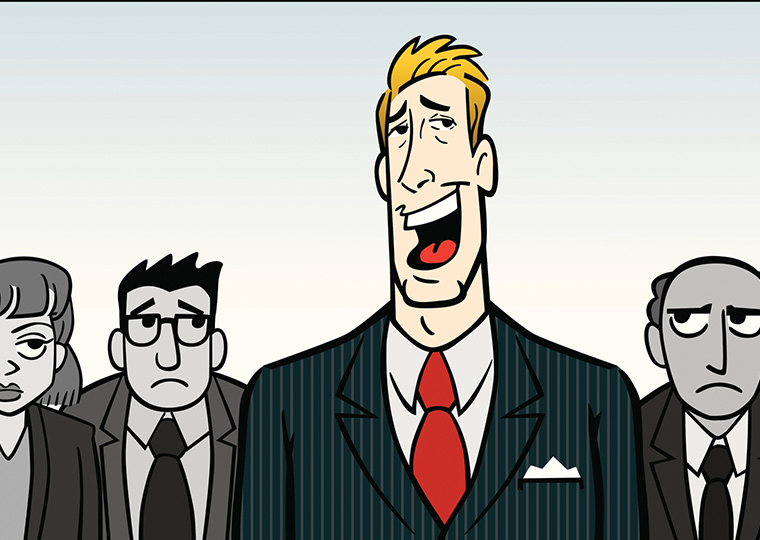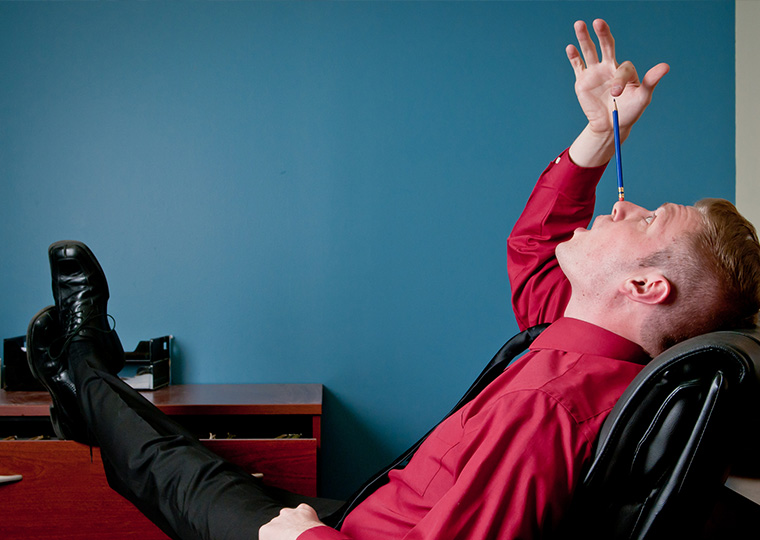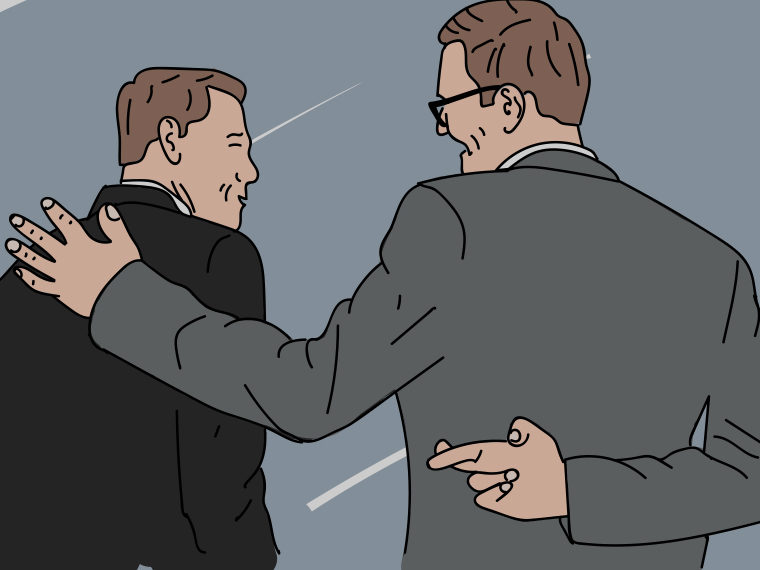The world of tennis sheds light on a potential downside to office ranking systems
Australian Nick Kyrgios retires after losing the first set to lower-ranked American Steve Johnson, 7–6 (7–5), in a tiebreaker in the 2017 Shanghai Masters.
Any manager tasked with a challenging project is likely to tap the office rock stars for the assignment, relying on their talent and inner drive to get the job done.
What makes great intuitive sense can nonetheless backfire.
A new study in the Academy of Management Journal suggests that people saddled with the high expectations of others are less resilient when a challenge proves tough in the early going. High performers with high expectations placed on their shoulders throw in the towel more often than people who aren’t weighed down by the same outside pressure to perform.
“Those facing high expectations are more easily embarrassed by poor performance and, consequently, less persistent following early setbacks,” write UCLA Anderson’s Hengchen Dai, the University of Chicago’s Berkeley Dietvorst, American Express Global Business Travel’s Bradford Tuckfield and the University of Pennsylvania’s Katherine L. Milkman and Maurice E. Schweitzer.
Their study suggests a potentially “harmful consequence” to using ranking systems, which are all about telegraphing management expectations. “Our findings suggest that ranking systems should be used with caution,” the authors write .
The researchers pored over more than 325,000 men’s tennis matches spanning nearly four decades and calculated the frequency of a player’s quitting after losing the first set. The vast majority of matches are best two-out-of-three; across all the matches studied, players who came up on the short end in the opening set went on to lose the match more than 80 percent of the time.
To be sure, injuries do occur, but the rules of the professional tour provide reputational cover for all quitting. Injury or illness is the only officially accepted reason to give up, which means quitting also conveniently provides a face-saving explanation for losing the first set. The researchers noted — critically — that their analysis compared slight favorites (players whose ranking was just barely superior to their opponent’s) with slight underdogs (players whose ranking was just barely inferior to their opponent’s). They found that slight favorites were more likely to quit than slight underdogs after losing the first set — even though the likelihood of illness or injury is identical. “We have suggestive evidence that some of the injuries that favorites claim are, at the very least, less severe than those claimed by underdogs if not entirely fictitious.”
Although quitting is not common (the average rate is 1.4 percent) the graphic below shows that higher-ranked players who bear the burden of a crowd (and media) full of expectations, indeed, have a higher quit rate after a first-set setback than lower-ranked players.

Source: Dai et al. (2017), Quitting When the Going Gets Tough: A Downside of High Performance Expectations
Embarrassment seems indeed to play a central role; the more lopsided the first-set loss, the more likely a player threw in the towel.
The tennis data set was perfect for the study, but did the thesis also apply more generally? The researchers next conducted a lab experiment that ran more than 300 participants through a trivia challenge. Prior to the challenge, participants were told their questions would be either “middle school” difficulty or “expert” difficulty. In reality, all the questions were the same, but expectations had been imposed; the “middle school” faction was primed to feel the pressure to succeed.
The initial trivia quiz consisted of 20 questions. Participants were aware their performance would be publically ranked against other participants’; they were told the correct answer after each question, so they could track their performance. The average success rate was about 23 percent for both groups.
After the 20th question, participants were given the option to stick with the current topic or switch to another topic. Making the switch carried an economic penalty: the original 15-cent reward for correct answers would be reduced to 10 cents if the participant “quit” the first topic and moved on to another topic.
Participants were also asked to rate their level of embarrassment on a scale of 1 (not at all) to 7 (very much).
Participants who had been told they were fielding middle school-level questions — thus feeling more pressure to perform well given the lower bar — were decidedly less persistent. They opted to switch to another topic (quit) after an average of 22 questions, compared to the lower-expectation group fielding the supposedly “expert” questions, who stuck it out for nearly 30 questions.
Consistent with the authors’ theorizing, embarrassment was shaped by expectations. The middle school group, manipulated into feeling they bore high expectations to perform well, reported an average embarrassment score of 3.08 compared to 2.65 for the “expert” group, who carried less societal pressure to do well given the higher (perceived) level of difficulty in their questions.
While prior research has established the positive aspect of management’s placing high expectations on workers, the study by Dai and colleagues adds an important wrinkle that should give managers pause.
“We both theorize and demonstrate that facing high external expectations can, in the face of early setbacks, be a burden,” the team writes. That’s not necessarily a reason for management to lower its expectations; rather, managers should be at the ready with support and systems to help high performers tough it out after an initial setback.
Featured Faculty
-
Hengchen Dai
Associate Professor of Management and Organizations and Behavioral Decision Making
About the Research
Dai, H., Dietvorst, B.J., Tuckfield, B., Milkman, K., & Schweitzer, M. (in press). Quitting when the going gets tough: A downside of high performance expectations. Academy of Management Journal.






